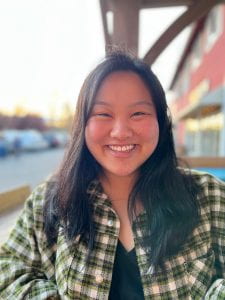Navigate this page
- Table of Contents
- Letter from the Co-Directors
- Critical Disability Studies Academic Program
- The Annual UnConference Returns!
- Clubs, Outreach, and Events
- Featured Speakers and Events
- ICDS Scholarships and Fellowships
- Our People – Meet the ICDS Members
- Creative and Scholarly Submissions from the ICDS Community
- Editorial Staff and Thanks
Table of Contents
Letter from the Co-Directors
Dear Institute for Critical Disability Studies community,
Welcome to our first ICDS Disability Studies and Action Collaborative Annual Showcase, as we reflect on our exciting first years as a community, and our first full year as an official Institute at Western Washington University.
In our first year at the Institute for Critical Disability Studies, we have achieved significant milestones, including the launch of a new academic program in Critical Disability Studies and the introduction of a CDS minor. These programs have received enthusiastic responses from students, and we have developed core courses to cater to their needs. We began offering our first critical disability studies course this Spring, and launched the first core course and GUR, DISA 330 Critical Disability Studies, this summer. We are excited to announce that this coming academic year will include five DISA courses including quarterly offerings of DISA 330 in both in-person and remote modalities, as well as two offerings of DISA 350, our Topics in Critical Disability Studies with five more courses planned for the upcoming year. You can find a full listing of all Critical Disability Studies courses and related electives on our website.
Students have been integral to our work, serving on committees and forming a student advisory council you will read about elsewhere in this Showcase. Through the support of our donors, we have also been able to provide the Mark West scholarship to students doing activist or scholarly work on disability issues.
Last year, after a hiatus due to the COVID-19 pandemic, we successfully hosted the second annual fall Disability Studies and Action Collaborative UnConference in October 2022, which facilitated collaboration, community building, and the sharing of expertise among participants [link]. We also organized presentations by esteemed scholars and creators, highlighting our commitment to uplifting BIPOC voices and promoting Disability Justice. Click below to access video recordings of presentations by Dr. Pau Abustan titled “Comfy, Cozy, Community Centered Learning: A Queer, Crip, Philipinx Led Disability Justice Praxis“ and Dr. Sami Schalk titled “Introduction to Disability Justice and Accessible Pedagogy” We are working on offering our third annual UnConference for this coming October 21 and 22, 2023.
We are proud to announce our first cohort of ICDS Fellows, who have been working on exciting projects related to disability scholarship, advocacy, and culture throughout 2023. More information about them can be found on our Fellows page.
Looking ahead, we have ambitious plans for the future. We aim to continue our public programming, including the UnConference and invited speaker events, to showcase our commitment to collaboration and intersectionality. We also intend to expand our scholarship programs, tailoring them to different areas of engagement with Critical Disability Studies. Moreover, we will work on growing our minor by creating new courses and expanding the curriculum to include topics such as race, intersectionality, and disability, and disability in the performing arts.
Supporting disabled students, faculty, and staff at Western is a priority for us. Beginning in fall 2023, we are launching support and discussion groups, focusing on issues like teaching and supporting students as a disabled faculty and staff, and on fostering an activist-minded disability community. These initiatives are part of our larger role as leaders of disability culture at Western. We are excited to discuss and share more ideas and initiatives from within our community.
If you believe in the value of our work, we invite you to join us. Subscribe to our mailing list for updates on meetings, courses, and events. Participate in our committees to support curriculum development, events planning, fundraising, and outreach efforts. We also invite Western faculty to reach out to us if interested in teaching DISA courses and adding more courses to our ever-growing and interdisciplinary list of electives for our Minor in Critical Disability Studies. Additionally, you can contribute to the ICDS at any time by making a donation to the Institute through the WWU Foundation, to allow us to develop new programs in the future. Find the link to donate on our website.
We would like to express our gratitude to all those who have contributed to our success this year. Profiles of many individuals can be found in the showcase, and we appreciate the involvement of the wider community at Western and beyond.
Warm regards,
Andrew Lucchesi and G McGrew
Institute for Critical Disability Studies Co-Directors

Critical Disability Studies Academic Program
New Courses and Minor Approved!
As of Fall 2023 students can now register for the anticipated minor in Critical Disability Studies. The minor explores disability through the study of social access, cultural beliefs, and lived experiences. Both Spring 2023 and Fall 2023 will feature the flagship course of the Critical Disability Studies Minor: DISA 330- Critical Disability Studies. This course focuses on topics such as disability rights and disability justice movements, cultural criticism of literature and popular media, and the principles of universal design in physical and digital spaces. The enthusiasm for this program has been incredible. In both quarters, the Critical Disability Studies course filled within Phase 1 of registration.
Minor Launch Party
To commemorate the launch of the new Critical Disability Studies minor, The Institute for Critical Disability Studies (ICDS) hosted a celebratory launch party with members of the ICDS and students interested in the minor.
The Annual UnConference Returns!
The Disability Studies & Action Collaborative UnConference is a balance between an academic conference and a collaborative exploratory workshop. This two day event centered around interactive workshops and problem-solving sessions, where teams collaborated to tackle complex issues and uncover potential solutions.
The first day of the Unconference consisted of multiple workshops. Participants were placed into groups based on their skills and interests. Throughout the day, groups worked in several sessions to diligently examine their given topics. The workshop topics ranged from accessibility of resources within education and healthcare, to the accommodation shift post-COVID, to intersectionality. Each session served as a safe space for exchanging ideas, fostering meaningful conversations, and nurturing innovative solutions. You can read the summaries of these workshops here.
On the second day, the Unconference held their Presentation Day, where panels were created based on topics, and presented in a multitude of formats including, but not limited to: rapid roundtable discussions, pre-recorded videos, and formal talks. These presentations touched upon various themes such as Neurodiversity, Leadership, Peers, and Student Experience, Disability in History and the Archives, and Disability in Media and Social Media.
Clubs, Outreach, and Events
Student Advisory Council (SAC)
The Institute for Critical Disability Studies Student Advisory Council (SAC) functions with the goal of ensuring that the disabled student body is heard within the ICDS. The SAC is a student-run organization composed of both undergraduate and graduate students that represent the needs and priorities of students through community discussion. The focus of the council includes disability representation within administration, curriculum development for education on disability, determining and sharing communities and spaces available for disabled students, and physical accessibility. The ICDS and SAC prioritizes student voices and guarantees a safe environment for students to share their thoughts and concerns. This year, the SAC was inaugurated by the ICDS’s Graduate TA, Hidemi Mitani Shen, and an official council charter was created in collaboration with students and SAC leadership. SAC Leadership has also held conversations on improving accessibility within the University. The SAC’s main focus for this Spring Quarter was to create a recruitment plan to engage more students in the upcoming academic year. Next year, the SAC also plans to collaborate with other university organizations and clubs to improve disability training resources for faculty members, increase student participation, and continue to give a safe space for the disability community to have their voice be heard.
ICDS Representing at WWU QueerCon 2023
On Saturday, April 29, 2023 the Institute for Critical Disability Studies tabled at Western Washington University’s 7th Annual QueerCon event. With a focus on intersectional community, the event hosts over 80 tables from vendors and organizations. The ICDS shared ways for students to get involved with the institute, and distributed information about the new Critical Disability Studies minor. The table had a great turnout, and was out of fliers by the end of the event.
Scholars Week and Dr. Sami Schalk Keynote
Western Washington University Scholars Week is an annual showcase that features research and creative work from both undergraduate and graduate students. This year, the showcase included presentations from faculty and student groups, a poster session, three-minute thesis presentations, and readings of creative works. Across campus, Scholars Week was being celebrated with several events including a virtual presentation by Dr. Sami Schalk. The ICDS held a meeting with Dr. Sami Schalk to discuss Critical Disability Studies, identifying new things to implement for the Institute moving forward.
Give Day
The 2023 Annual WWU ICDS Give Day raised $2,235 from 21 generous donors. These donations help the ICDS by supporting our programming and advocacy work, ensuring our events are affordable and accessible to all, and helping us directly support Western students through job opportunities and scholarship awards. Every small donation helped us meet the entire ICDS Scholarship Match Challenge, which unlocked an additional $1,000 in scholarship funds for our new General Scholarship Fund.
Featured Speakers and Events
We hosted two invited speakers in 2022/2023, Dr. Pau Abustan (Cal. State Los Angeles) and Dr. Sami Schalk (University of Wisconsin, Madison). Click the links below to access recordings of their presentations. We are grateful to the programs and departments who helped support these events.
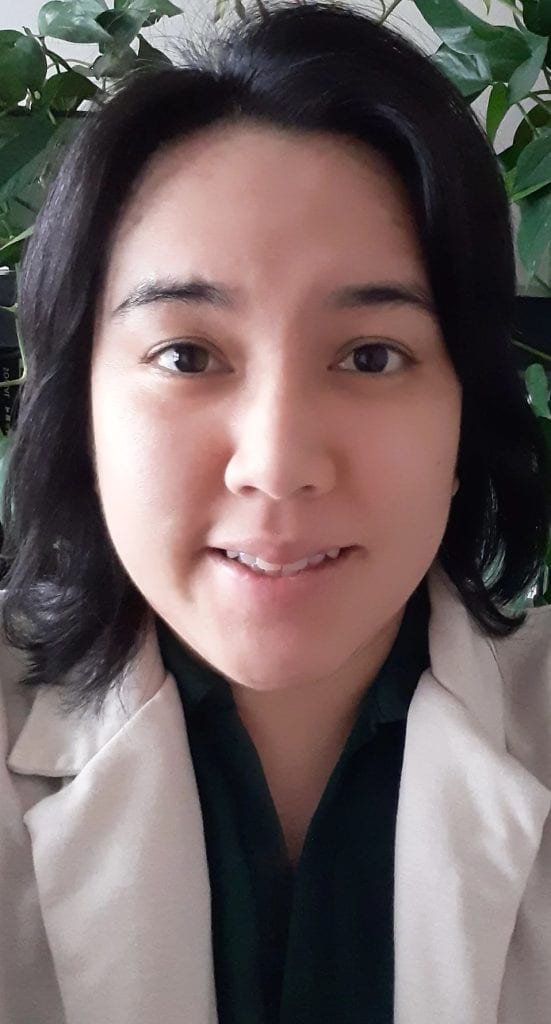
Dr. Pau Abustan presented as the keynote speaker at the 2022 UnConference of the Disability Studies and Action Collaborative. Their presentation titled “Comfy, Cozy, Community Centered Learning: A Queer, Crip, Philipinx Led Disability Justice Praxis” focuses on connections between personal history and community strength.
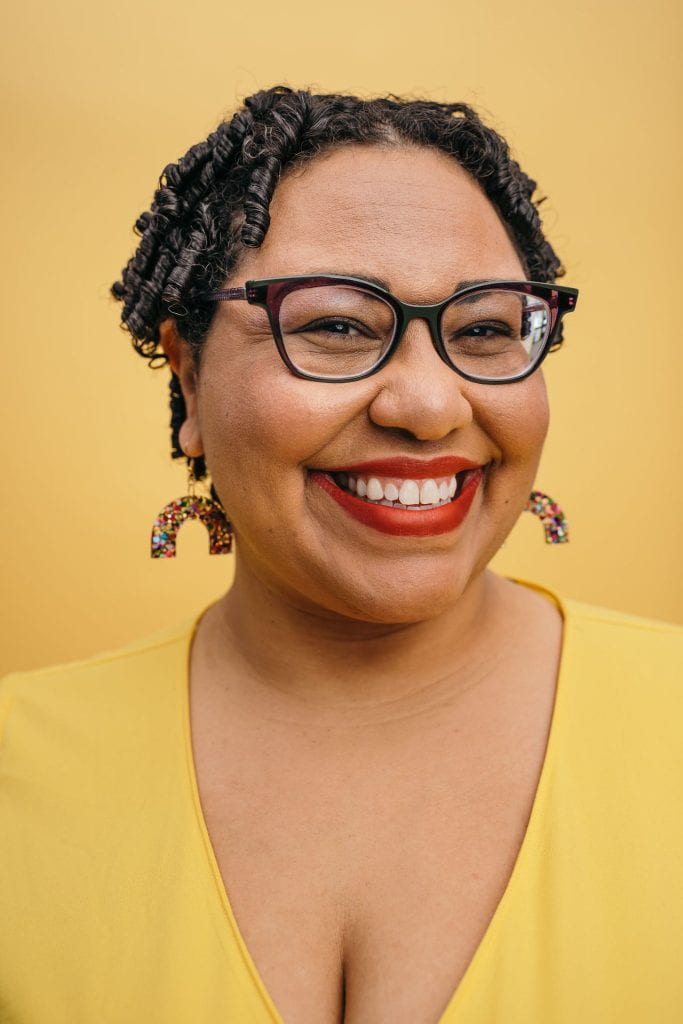
Dr. Sami Schalk presented as the featured speaker for 2023 Scholars Week. Her presentation titled “Introduction to Disability Justice and Accessible Pedagogy” focuses on the ways radical ideas about disability activism and community building can lead to more accessible teaching practices. This presentation was co-sponsored by the departments of English, Health and Human Development, Journalism, Philosophy, Anthropology, Sociology, Political Science, History, and the Women, Gender, and Sexuality Studies program.
ICDS Scholarships and Fellowships
The WWU Institute for Critical Disability Studies supports faculty, staff, and community members through one-year fellowships where Fellows engage in programs or projects related to disability scholarship and advocacy. This new process-driven program, launched in 2023, builds an annual cohort of five Fellows from various professional and advocacy backgrounds.
Meet the 2023 ICDS Fellows Cohort
Erica Bigelow
I’m a philosophy PhD student at the University of Washington, and am working toward a graduate certificate in science, technology, and society studies. I hold a bachelor’s degree from Stonehill College in North Easton, MA, and a master’s degree from Miami University in Oxford, OH. I’m also a steward & organizer with UAW4121, and a philosopher-in-residence at Rainier Beach High school in Seattle. My academic interests are quite wide-reaching; they mostly lie at the crossroads of structural injustice, disability, social epistemology, feminist philosophies, affect, and applied ethics. Some of my current projects include an evaluation of the hermeneutical and phenomenological good that diagnosis can serve as, an examination of the ways that anger gets recapitulated as Madness and the unique harms that its bearer thus becomes subjected to, and, more recently, a paper exploring the harm perpetuated by characterizing the COVID-19 pandemic through militaristic metaphors.
Kat DeNicola (she/her)
I received my Master’s degree in Counseling Education with a Rehabilitation specialty in 2014 from Portland State University. I have experience working in the vocational rehabilitation field, teaching assistive technology, and working with disabled college students which is what I currently do as an Access Manager at the WWU Disability Access Center. One of the strongest messages disabled people receive from society is that we are broken. We are often viewed as less-than, as burdens. These judgments result in assumptions of what we can and cannot do, and thus what we are allowed and not allowed to do. As a totally blind woman, I believe the disabled body is something to be celebrated. We find ways to dance, to nurture, to create, to play sports, to make love, … And in our current climate where physical attacks on members of minority groups are increasing, we have the right to find ways to defend ourselves. The goal of my project is to provide general awareness and training to local self defense instructors on adapting their teaching techniques so that any disabled person can access training specific to their needs in an inclusive and accessible environment.
Erin Howard (they/them)
Research Scientist/Engineer with the Vera C. Rubin Observatory at the University of Washington
Erin is a genderqueer and neuroqueer disabled scientist working for the Rubin Observatory at the University of Washington. They graduated from Western Washington University in June 2022 with a Bachelor of Science in physics and math/computer science, with minors in astronomy and statistics. Their time at Western was spent advocating for disabled students and working with the College of Science and Engineering through the Student Ambassadors Program to help make classrooms more accommodating to everyone. In their free time, Erin works with the University of Washington’s Disabilities, Opportunities, Internetworking, and Technology (DO-IT) program as a panelist talking about the life of a disabled student and worker. University of Washington
Jzy (Jazmine Joy De Leon Balila/Yeeles) All Pronouns
Z devised their concentration in Declaration of Interdependence: Reclamation, Remediation, and Creation, minoring in Chemistry. They exist and operate in scalars–broadening perspectives and inviting specifications into moments and cases. She is of the ocean, space, and the elements. He devotes himself to timelessness and presence.
Melina Juárez Pérez (she/they)
Assistant Professor, Political Science and Women, Gender, & Sexuality Studies
Melina Juárez Pérez is an Assistant Professor in Political Science and Women, Gender, and Sexuality Studies. They were born and raised in the Central Valley, California in a Mexican immigrant farmworker community. Their work focuses on the lives, health, and happiness of Latinx and BIPoC communities, particularly that of fat, disabled, queer, and women folk. Her time as a CDS Fellow will be spent on examining the ways disability functions within Latinidad and how it shapes relationships among Latinxs.
Mark West Scholarship Recipients
The Mark West Scholarship supports WWU students that are engaging in studies related to disability studies and accessibility. The scholarship application is also an option for students that contribute to disability culture at Western through arts, activism, or advocacy work. The award is made possible by the generous donation of Maureen West, WWU trustee and Disability Studies advocate.
Phoenix Booth (they/them/theirs)
I have an intersectional identity that includes being crip, queer, non-binary, white and I am a first-generation college student from a disadvantaged socio-economic background. I hold a BFA in metalsmithing, a master’s in Critical Craft Studies, and am a master’s candidate in the history program at WWU. My research passion is the topic of therapeutic craft, and I am currently exploring it from a cultural history perspective. My inquiry considers how craft was used in American medical institutions from 1888 to 1917. I am placing my inquiry at the intersections of disability history, craft history, and occupational therapy/medical history to tease out associations and implications commonly overlooked. A deep understanding of the socially constructed nature of disability lies at the heart of my inquiry and will inform my analysis of primary source materials regarding historical therapeutic craft practices.
Hillary Banks (she/they)
Hillary Banks is a Fairhaven major and WGSS minor. They have taken WGSS 450 on disability studies, helping her find her voice. They are a queer, non-binary and pan-sexual, disabled, multi-racial, and Black identifying student. Having done activist organizing in the past, they continue to fight for intersectional justice and liberation of minorities and the environment. Helping organize a local Bellingham chapter for Black Lives Matter, they are interested in furthering education and research into topics of disability and liberation to better inform future efforts.
Our People – Meet the ICDS Members
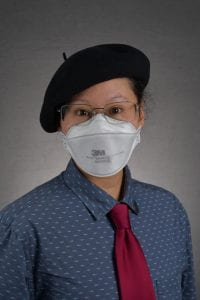
GIM (G McGrew)
he/they
Co-Director
College of Science & Engineering
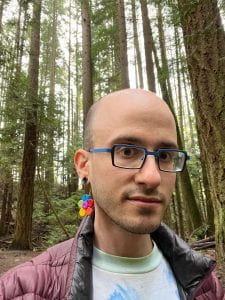
Andrew Lucchesi
he/they
Co-Director
Associate Professor, English
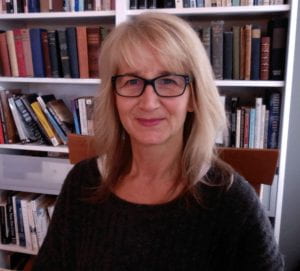
Allison Giffen
she/her
Spring 2023 Interim Co-Director, AY23-24 Curriculum Committee Chair
Faculty, English
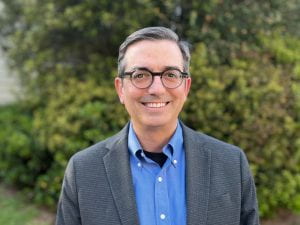
Sean Bruna
he/him
Fall 2022 Curriculum Committee & Minor Task Force
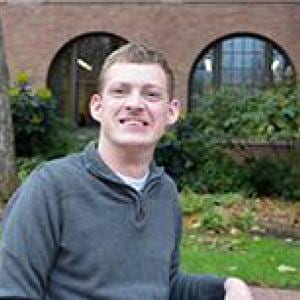
Daman Wandke
Outreach Committee
Instructor, Educational Leadership and Inclusive Teaching
Daman is teaching Critical Disability Studies (DISA 330) in Su 23
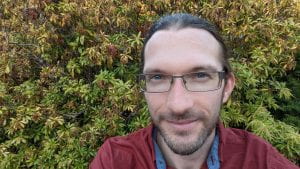
Tim Kowalczyk
he/him
Institute Advisory Council
Chemistry & Energy Studies
Elizabeth Boland
Curriculum Committee, Outreach Committee
Professor, Health and Community Studies
Tara Perry
she/her
Curriculum Committee
Professor, Department of Communication Studies, faculty affiliate to Institute for Critical Disability Studies and Women Gender and Sexuality Studies
Gretchen Rumsey-Richards
Outreach Committee
Deaf Hard of Hearing Service Manager
Kristen Chmielewski
she/her
Outreach Committee
Faculty, Recreation Management & Leadership. Kristen taught our first DISA course offering in Spring 2023 (DISA 397A – Critical Disability Studies).
Pam Kuntz
Outreach Committee
Senior Instructor, Dance
Kat DeNicola
she/her
Programming Committee Chair
Access Manager, Disability Access Center
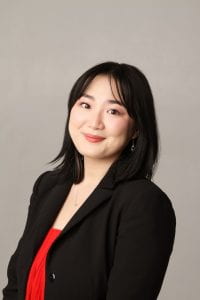
Hidemi Mitani Shen
she/her
Graduate Teaching Assistant
Graduate Student, Computer Science. Hidemi has dedicated her time as a GTA by assisting in the execution of the UnConference, and to create the SAC to foster a space for students to have a safe space. She is also a co-editor for the Annual Showcase.
Spike Osadchuk
Graduate Teaching Assistant
Graduate Student, Anthropology.
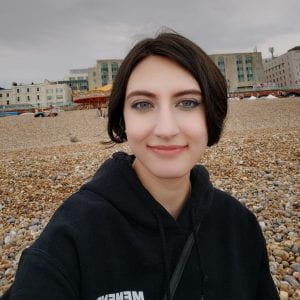
Ananda Trujillo
they/them
SAC Co-President
4th Year Student, Psychology. I first found out about disability studies courses at WWU in fall 2020 when I took EXCE 205 Disability, Diversity, and the Mass Media with Professor Wandke. It completely reformed my thoughts about disability, and I couldn’t engage with media without thinking about this class. It made me want to learn more so I took several other courses in this discipline. I started getting involved in the ICDS in the winter of 2021. Now, I am one of the co-presidents of the ICDS Student Advisory Council. Being disabled myself, I am very passionate about this work and helping more WWU students gain access to the field of critical disability studies.
Creative and Scholarly Submissions from the ICDS Community
The ICDS is proud to share creative and scholarly work from both students and faculty at WWU.
Women of Color with Visible Disabilities Face In Western Washington
by Lilyanna Sullivan
My name is Lilyanna Sullivan. As a queer Chinese adoptee, I find the intersections of race, gender, class, and ability vital to understanding ways people can truly make a positive change. As a disability advocate and someone who has worked extensively with the disabled community, I believe that the disabled community is totally and completely underserved. With my work, I hope to shed light on the challenges people with disabilities face. To read the full paper, you can access it here.
Abstract
The proposed research investigates the experiences that women of color with visible
disabilities (WOCWVD) have had in Western Washington. It asks, what is the range of
visible disabilities of women in Western Washington? What types of barriers do they
face? How are their experiences impacted by race and ethnicity? There is very little
research that has focused on their distinct experiences. Rather, previous research on
WOCWVD have either focused on white women with disabilities, (Davidson, 2013) or
people of color with disabilities as a whole group (Johnson & Lambrinos, 1985). There
has been hardly any research on women of color with visible disabilities specifically. By
creating a better understanding of the specific perspectives and experiences that
WOCWVD have, this research will deconstruct the damaging and colorless paradigms
surrounding the experiences that WOCWVD face which reduces/combines WOCWVD’s
experiences to only what white women with visible disabilities have experienced. Given
the triple jeopardy that WOCWVD face, it is imperative that we understand their
experiences of barriers in their daily lives to better meet their needs. Qualitative data in
the form of formal interviews and participant observation with WOCWVD that live in
Western Washington will be used. Formal interviews and participant observation will be
harnessed to better recognize how they understand, feel, cope, and experience the
obstacles they face. The participants will engage in both the formal interview and
participant observation. This will be used to generate a better understanding of the
experiences that WOCWVD have had so that we can better serve and represent these
specific women in our Western Washington community by creating valuable policies that
reduce barriers, create opportunities, and improve their quality of life.
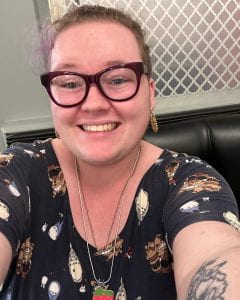 Fibromyalgia and Chronic Pain in Academic and Professional Settings
Fibromyalgia and Chronic Pain in Academic and Professional Settings
by Violet Smith
My name is Violet Smith (they/them), and I am studying Women, Gender, and Sexuality Studies and Critical Disability Studies. I am passionate about consent and sexual health and wellness education, supporting survivors of sexual and domestic violence, and disability justice. I believe the personal, political, and academic can all intersect in a way that makes the world a better place. I am excited to be a part of such change. To read the full paper, you can access it here.
Introduction
Fibromyalgia can be defined as “a syndrome characterized by chronic widespread pain,
joint stiffness, sleep disruption, and other systemic symptoms, including mood disorders, fatigue,
and cognitive dysfunction.” (Chen, Carpenter, Flaherty, 2019) “People with fibromyalgia likely
have sleep disorders; severe changes in mood and thinking, depression and chronic anxiety;
headaches; impaired memory; irritable bowel syndrome (IBS); multiple chemical sensitivity
(MCS); restless legs, skin and temperature sensitivity; and tingling” (Job Accommodations
Network, 2022) What are the impacts of fibromyalgia? How can we be more accommodating of
people with fibromyalgia, chronic pain and other disabilities in academic and professional
environments?
Queer Autism Zine
by Violet Smith
You can access the whole project here.
Queer Autism Zine
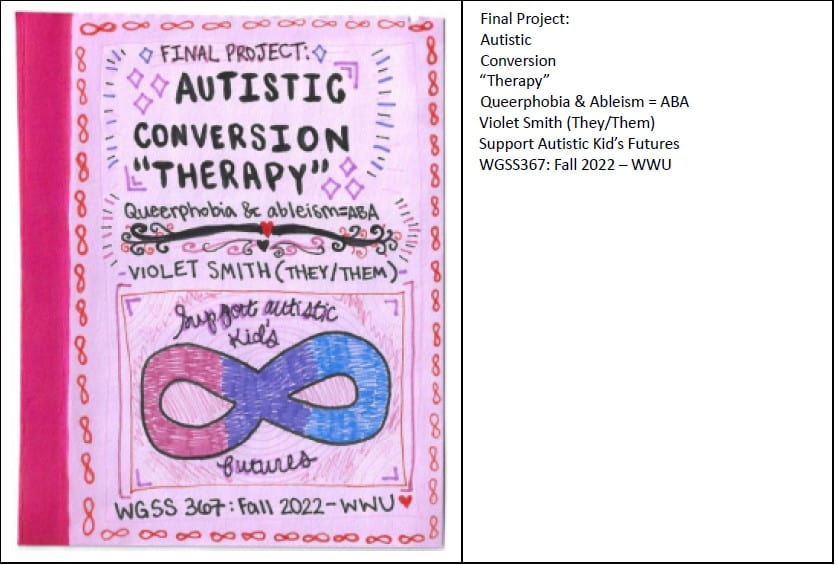
Editorial Staff and Thanks
The ICDS is grateful for the work of the student editors who helped to make the Disability Studies & Action Collaborative 2023 Annual Showcase happen. The 2023 Annual Showcase was compiled and edited by Rachel Kleffman and Hidemi Mitani Shen.
